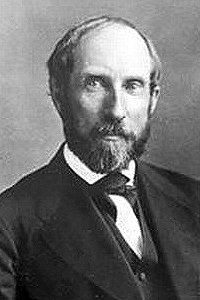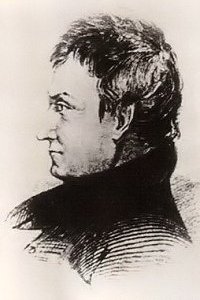Introduction

Words: David Nelson, 1835.
Music: Shining City George F. Root, 1855 (🔊 ![]()
![]() ).
).

My days are like a shadow that declineth.
Psalm 102:11

Words: David Nelson, 1835.
Music: Shining City George F. Root, 1855 (🔊 ![]()
![]() ).
).

Mr. Nelson was a surgeon in the army during the War of 1812. Afterward he entered the ministry, preached in Tennessee and Kentucky, and later moved to Missouri, where he opened a plantation.
There he heard an address on the evils of slavery that changed his views.
I will live on roast potatoes and salt before I will hold slaves!he declared. He advocated colonization of the negroes.This brought down upon him the wrath of his slave-holding neighbors, who drove him from his home and pursued him through the woods and swamps for three days and nights.
Finally he came out on the banks of the Mississippi River opposite Quincy, Illinois. By signs he made known his condition to friends there, and then hid in the bushes to await the approach of night.
As he lay there in danger of being captured every moment, the land of freedom in plain sight, with the swiftly gliding waters between, the lines of this hymn began to form in his mind, and he wrote them down on the back of a letter he had in his pocket.
The voices of the vengeful pursuers were heard in the woods about him. Once they strode by the very clump of bushes in which he was concealed, and even poked their guns into separate the branches; but they failed to notice him.
Several members of the Congregational church of Quincy came over in the evening in a canoe, and began fishing near his hiding-place. When they had located this exactly they gave a signal, and drawing near to the shore, met him as he rushed down the water’s edge.
They got him safely to the Illinois side, but were discovered and followed by the slaveholders, who demanded his surrender. But they were informed that Mr. Nelson was now in a free State, and that nothing should molest him.
In Illinois he was employed by the Home Missionary Society and continued to take an active part in the anti-slavery agitation of those times.
Sankey, pp. 277–78
My days are gliding swiftly by;
And I, a pilgrim stranger,
Would not detain them as they fly,
Those hours of toil and labor.
Refrain
For, oh! we stand on Jordan’s strand;
Our friends are passing over;
And, just before, the shining shore
We may almost discover.
We’ll gird our loins, my brethren dear,
Our distant home discerning:
Our waiting Lord has left us word,
Let every lamp be burning.
Refrain
Should coming days be cold and dark,
We need not cease our singing:
That perfect rest naught can molest,
Where golden harps are ringing.
Refrain
Let sorrow’s rudest tempest blow,
Each cord on earth to sever:
Our king says, Come,
and there’s our home,
Forever, oh! forever.
Refrain